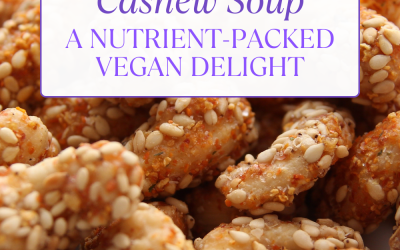Introduction: The Nutritional Benefits of Cashews
Cashews are not only delicious, but they also offer a wide range of nutritional benefits. They are packed with essential nutrients such as vitamins, minerals, and healthy fats that are important for overall health. Cashews are a great addition to a healthy diet because they provide a good source of protein, fiber, and antioxidants. They are also low in saturated fat and cholesterol, making them a heart-healthy choice.
Cashews are rich in vitamins and minerals such as magnesium, phosphorus, copper, and manganese. These nutrients play a crucial role in maintaining healthy bones, supporting the immune system, and promoting proper nerve function. Cashews are also a good source of antioxidants, which help protect the body against free radicals and oxidative stress.
Understanding the Caloric Value of Cashews
While cashews offer numerous health benefits, it is important to be mindful of their caloric value. Cashews are relatively high in calories compared to other nuts, with approximately 160 calories per ounce. However, it is important to note that the calories in cashews come from healthy fats, which are essential for the body.
When comparing the caloric value of cashews to other nuts, it is important to consider the portion size. For example, almonds have a similar caloric value to cashews, but they are lower in fat. On the other hand, walnuts have a higher caloric value but are also higher in omega-3 fatty acids. Ultimately, it is important to choose a variety of nuts to ensure a well-rounded intake of nutrients.
Portion Control: How Much is Too Much?
While cashews offer numerous health benefits, it is important to practice portion control when consuming them. Cashews are calorie-dense, meaning that a small amount can provide a significant number of calories. It is recommended to consume cashews in moderation and be mindful of portion sizes.
A serving size of cashews is typically around 1 ounce, which is equivalent to about 18 cashews. This portion size provides a good balance of nutrients without going overboard on calories. Overconsumption of cashews can lead to weight gain and may increase the risk of certain health conditions such as heart disease and diabetes.
Creative Ways to Incorporate Cashews into Your Diet
Incorporating cashews into your diet can be both delicious and nutritious. There are many creative ways to enjoy cashews, whether it be in meals or snacks. Here are some suggestions for incorporating cashews into your diet:
1. Add cashews to salads: Cashews can add a crunchy texture and nutty flavor to salads. They pair well with leafy greens, fruits, and vegetables. Try adding cashews to a spinach salad with strawberries and feta cheese for a delicious and nutritious meal.
2. Use cashews as a topping: Cashews can be crushed or chopped and used as a topping for various dishes. Sprinkle them on top of stir-fries, roasted vegetables, or even oatmeal for added flavor and texture.
3. Make cashew butter: Cashew butter is a delicious and healthy alternative to traditional nut butter. It can be used as a spread on toast, added to smoothies, or used as a dip for fruits and vegetables.
4. Blend cashews into sauces and dressings: Cashews can be blended into creamy sauces and dressings to add richness and flavor. Try blending cashews with garlic, lemon juice, and nutritional yeast for a dairy-free and vegan alternative to cheese sauce.
The Role of Cashews in a Balanced Diet
Cashews play an important role in a balanced diet because they provide a good source of essential nutrients. They are rich in protein, fiber, and healthy fats, which are all important for overall health. Cashews also contain vitamins and minerals that support various bodily functions.
Protein is essential for building and repairing tissues, and cashews are a good plant-based source of protein. Fiber is important for maintaining a healthy digestive system and promoting feelings of fullness. Healthy fats, such as those found in cashews, are important for brain health, hormone production, and nutrient absorption.
The Importance of Choosing Raw or Unsalted Cashews
When choosing cashews, it is important to opt for raw or unsalted varieties. Raw cashews are not roasted or cooked, which helps preserve their natural nutrients. Unsalted cashews are lower in sodium, making them a healthier choice for those watching their salt intake.
Salted or roasted cashews, on the other hand, can be high in sodium and unhealthy fats. Excessive sodium intake can lead to high blood pressure and other health problems. Roasted cashews may also be cooked in unhealthy oils, which can increase their calorie content and negate some of their health benefits.
Healthy Alternatives to High-Calorie Cashew Treats
While cashews can be enjoyed on their own as a snack, there are also healthier alternatives to high-calorie cashew treats. Here are some suggestions:
1. Cashew energy balls: Blend cashews with dates, coconut, and a touch of honey to create delicious and nutritious energy balls. These make for a great on-the-go snack or a healthy dessert option.
2. Cashew granola: Make your own granola using cashews, oats, honey, and dried fruits. This homemade granola is lower in sugar and unhealthy fats compared to store-bought varieties.
3. Cashew yogurt: Blend cashews with water, lemon juice, and a touch of sweetener to create a creamy and dairy-free yogurt alternative. Top with fresh fruits and granola for a nutritious and satisfying breakfast or snack.
Tips for Mindful Snacking with Cashews
Practicing mindful snacking with cashews can help prevent overconsumption and promote a healthier relationship with food. Here are some tips for mindful snacking with cashews:
1. Portion out your cashews: Instead of eating directly from the bag, portion out a serving size of cashews into a small bowl or container. This can help prevent mindless snacking and keep track of your portion sizes.
2. Eat slowly and savor each bite: Take the time to chew your cashews thoroughly and savor the flavors. Eating slowly can help you feel more satisfied and prevent overeating.
3. Pay attention to hunger and fullness cues: Before reaching for a handful of cashews, check in with your body and assess whether you are truly hungry or just craving a snack. Similarly, pay attention to your body’s signals of fullness and stop eating when you feel satisfied.
Combining Cashews with Other Nutritious Foods for Maximum Benefits
Combining cashews with other nutritious foods can enhance their nutritional benefits and create a well-rounded meal or snack. Here are some suggestions for combining cashews with other nutritious foods:
1. Pair cashews with fruits: Cashews can be paired with fresh fruits such as apples, bananas, or berries for a balanced snack. The combination of fiber from the fruits and healthy fats from the cashews can help keep you satisfied and provide a good mix of nutrients.
2. Add cashews to yogurt or smoothies: Cashews can be blended into yogurt or smoothies to add creaminess and a boost of nutrients. This combination provides a good balance of protein, healthy fats, and carbohydrates.
3. Combine cashews with whole grains: Cashews can be added to dishes that contain whole grains such as quinoa, brown rice, or whole wheat pasta. This combination provides a good mix of protein, fiber, and complex carbohydrates.
Conclusion: Enjoying Cashews in Moderation for Optimal Health
In conclusion, cashews offer a wide range of nutritional benefits and can be a great addition to a healthy diet. They are packed with essential nutrients such as vitamins, minerals, and healthy fats. However, it is important to practice portion control and enjoy cashews in moderation.
By incorporating cashews into meals and snacks, choosing raw or unsalted varieties, and practicing mindful snacking, you can enjoy the nutritional benefits of cashews while maintaining a balanced diet. Remember to combine cashews with other nutritious foods for maximum benefits and to choose healthier alternatives to high-calorie cashew treats.
Overall, cashews can be a delicious and nutritious addition to a well-rounded diet. Enjoy them in moderation and reap the many health benefits they have to offer.






0 Comments